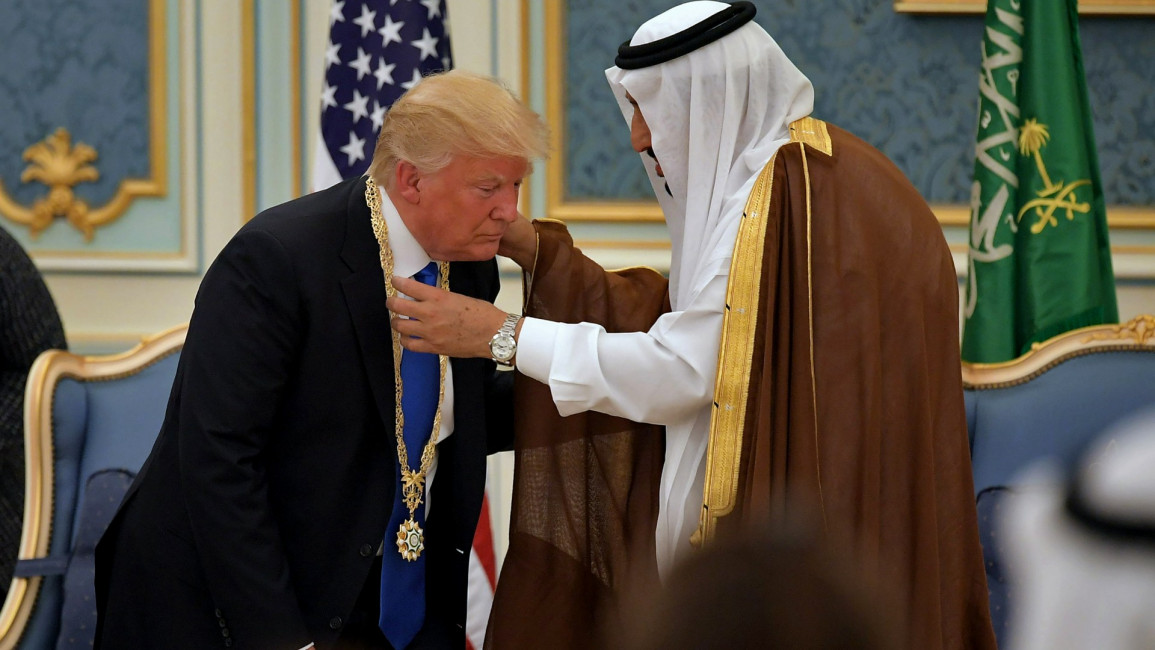Saudi king, US President Trump scurry to 'reaffirm relations' amid oil tensions
"The two leaders agreed on the importance of stability in global energy markets, and reaffirmed the strong United States-Saudi defence partnership," White House spokesman Judd Deere said.
"The president and King Salman also discussed other critical regional and bilateral issues and their cooperation as leaders of the G7 and G20, respectively."
The call came after news reports suggested the US was to withdraw two Patriot anti-missile batteries and some fighter aircraft from Saudi Arabia, according to a US official.
The official said the decision removes two batteries that were guarding oil facilities in Saudi Arabia but leaves two Patriot batteries at Prince Sultan Air Base in the Saudi desert, along with other air defence systems and jet fighters.
The decision scales back the American presence in Saudi Arabia just months after the Pentagon began a military build-up there to counter threats from Iran.
About 300 troops that staff the two batteries would also leave Saudi Arabia, according to the official, who spoke on condition of anonymity to discuss sensitive military operations.
When Saudi Arabia ramped up oil production and slashed prices this year, Republicans accused the kingdom of exacerbating instability in the oil market, which was already suffering because of the coronavirus pandemic.
Read also: In-depth: Oil price truce: The Russia-Saudi standoff is over. But at what cost?
The volatility and price crash in oil hurt US shale producers, leading to layoffs in the industry, particularly in Republican-run states.
Some Republican senators warned in late March that if Saudi Arabia did not change course, it risked losing American defence support and facing a range of potential "levers of statecraft" such as tariffs and other trade restrictions, investigations and sanctions.
The Saudi government and the Saudi Embassy in Washington did not immediately respond to a request for comment. State-run media in the kingdom similarly did not immediately acknowledge the troop removal.
Friday's statement of a phone call between the two leaders failed to mention the Patriot missiles.
Twitter Post
|
Iran tensions
Tensions with Iran escalated throughout last summer and fall, as the US blamed Tehran for using mines to target oil tankers near the strategic Strait of Hormuz and for attacking Saudi oil facilities. Violence peaked when the US carried out a drone strike in Iraq that killed Qasem Soleimani, Iran's top general.
Several days later, Iran responded by firing ballistic missiles at Ain al-Asad air base in Iraq where US troops were stationed, causing more than 100 to be diagnosed with traumatic brain injury.
At the time of the attack, the US had no Patriot defenses at those bases because it judged other locations, such as those in Saudi Arabia and elsewhere in the Gulf, to be more susceptible to an Iranian attack.
Following the strike however, the US decided to move Patriots into Iraq to give troops more protection from missiles.
Tensions with Iran have flared continually since January. Iranian boats harassed US warships in Gulf waters last month, the day after suspected Iranian soldiers briefly seized control of a Hong Kong-flagged oil tanker.
Follow us on Facebook, Twitter and Instagram to stay connected



